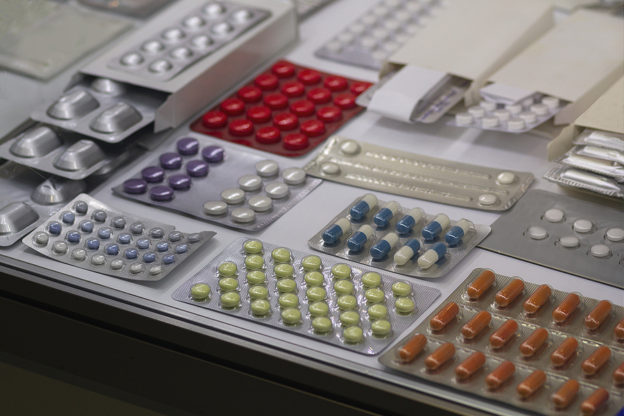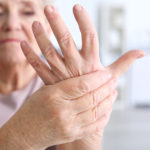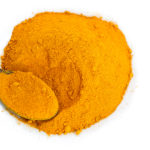By David Blyweiss, M.D., Advanced Natural Wellness
July 20, 2020
Tom was desperate when he first came into my office. He’d already been through the wringer with one doctor. And he hoped I could finally provide relief.
You see, eight months ago, Tom started experiencing chest pains. He went in to see his normal doctor who identified the cause as heartburn. Tom was sent home with a proton pump inhibitor (PPI) to fix his problem.
The doctor just forgot to mention one little thing. The PPI had a “black box” warning saying it shouldn’t be taken more than 6 weeks!
Tom started taking his medicine and found immediate relief. In fact, the drug worked wonders! His heartburn completely disappeared.
So, 12 weeks later, Tom decided he didn’t need it anymore. He was fine for a day or two… when BAM! He suddenly developed even worse burning reflux.
He reluctantly started taking his PPIs again, but decided to also do a little Internet research. Lo and behold! He discovered a few nasty little things his doctor forgot to share.
First off, Tom discovered he had taken the medicine for twice as long as was recommended.
He also learned that his original symptoms could be caused by the foods and beverages he normally consumed. His extra weight was also one of the most common causes of severe acid reflux – or GERD.
MD Exposes the Hidden Danger to Your Eyes

When your eyesight starts to fail, it's a real problem. Suddenly you can't go to the grocery store... you can't get to the doctor if you have an emergency... you can't meet your friends for dinner…
Your "regular" doctor doesn't have time to keep up with the latest research. And the same goes for eye doctors. They go to school to learn how to fit you for glasses and contacts, but have no way of preventing the damage and loss of eyesight that threatens your freedom and independence.
Let me show you something that explains a LOT about how your eyes work.
In my FREE Special Report, I'll show you a HUGE, untapped resource for your eyes that safely and naturally restores clear, effortless eyesight.
Click here to get started...
So, Tom decided to take action on his own. He changed his diet and made a plan to drop those extra pounds.
Fast forward a few months and Tom felt great!
He was eating better and his frame was ten pounds lighter. Again, he tried to stop taking those PPI meds.
And again, he experienced terrible heartburn. In fact, it felt like his chest and throat were ON FIRE.
So, what was going on?
Tom went back to his doctor to find some answers. But the doctor told him he just needed to keep taking those PPIs to treat his chronic GERD.
Afterwards, Tom went home and did some more research. This time, he learned proton pump inhibitors come with something called a “rebound effect.” The medical term is rebound acid hypersecretion.
In other words, the same drug that was supposed to treat his heartburn may have literally created his GERD symptoms! (This was another thing his physician had not shared with him.)
That’s when Tom decided to make an appointment with me. And he was right. He was suffering from rebound.
You see, you can only fool the body so long. At some point, your body will find a way to make more acid to compensate for the proton pump inhibitors. It does this by making more proton pumps to compensate for the drugs’ inhibition of the other cells pumping out hydrogen ions to help make hydrochloric acid…that your body needs to digest food!
When you stop the medicine cold turkey, you have more acid being made than before. The natural consequences of this is an outpouring of HCl and acid reflux.
To finally give Tom some relief, I helped wean him off the PPIs over the course of four weeks. I also prescribed 500 mg of mastic gum capsules twice a day with 75 mg of zinc carnosine for four weeks.
I recommended Tom chew two deglycyrrhizinated licorice tablets (DGL) before meals (or whenever heartburn struck) to help ease his heartburn symptoms while repairing the mucosal lining of his stomach.
Are You Suffering From...
- Love handles and a pot belly
- Romance that isn't what it used to
- Forgetfulness and inattention
- Low (or no) strength and endurance
- A sex drive that's shifted into neutral...or worse
If so...you may have Mature Male Burnout. Click here to discover more about this unique condition and what you can do about it.
I’m glad to say that Tom is now PPI free and by modifying his diet to avoid his trigger foods, he’s also free of his heartburn symptoms.
But PPIs aren’t the only common OTC medications that come with a rebound effect.
Watch Out for Nasal Decongestants and Eye Drops Too!
When you get a cold or suffer allergies, nasal decongestants like Afrin can quickly help free up your nasal passages.
But these sprays work by constricting the blood vessels in your nose. As soon as they wear off and dilate again the blood rushes back in and you become even more congested than you were before.
So, you keep using it, over and over again until eventually it stops working altogether.
At the same time, nasal decongestants do nothing to resolve the underlying condition. In fact, they may actually make things worse by increasing swelling and inflammation – resulting in years of nasal agony.
Instead, I recommend taking a natural approach to a clogged and snotty nose, especially if this a chronic rhinitis or sinusitis. Flush the bad microbes out of your nose and replace it with good bacteria.
Here’s what you’ll need:
- A neti pot, rubber ear bulb or spray bottle
- 8 ounces of saline solution, lukewarm
- a probiotic capsule
Open up the probiotic capsule and pour its powder into the saline. Shake or stir it until it’s dissolved. Then, use the solution as a nasal irrigation.
Last but not least, let’s talk about eye drops…
Now, everybody wants their eyes to look bright, white and shiny. And eye drops achieve this in less than a minute.
But like the other OTC treatments I’ve talked about today, these drops also have a rebound effect. They wear off and your eyes get red again.
So you use more and more until the drops quit working altogether – and you could end up with persistent red eyes.
Now there are a number of things that can contribute to redness in the eyes. Eye strain, rubbing, smoke, dust, pollen, pet dander… just to name a few. So avoiding irritants is one way to get started.
But I find that in many cases, what the eyes really need is more moisture.
Drinking plenty of water is a great first step. It not only hydrates your body, it also helps keep your eyes clear and moist. Another issue is forgetting to blink to keep the eye moist, especially if you’re staring at a TV or computer screen for hours.
I also recommend getting your fair share of omega-3 fatty acids. In particular, docosahexaenoic acid (DHA) is found in high concentrations in the retina. And within just a few months omega-3s can replenish the oils that soothe and moisten your eyes. This can go a long way in soothing – and preventing – red and irritated eyes.
You can also place a cool compress over your closed eyes a couple of times a day. This will help constrict the dilated blood vessels that cause redness, and soothe any associated irritation.
So remember, when taking something to simply hide or reverse a symptom, the shortest course of using it is frequently the best…giving you time to research natural solutions for long term benefits.
SOURCES:
Reimer C, et al. Proton-pump inhibitor therapy induces acid-related symptoms in healthy volunteers after withdrawal of therapy. Gastroenterology. 2009 Jul;137(1):80-7, 87.e1.
McColl KE, et al. Evidence that proton-pump inhibitor therapy induces the symptoms it is used to treat. Gastroenterology. 2009 Jul;137(1):20-2.
Güvenç IA, et al. Do probiotics have a role in the treatment of allergic rhinitis? A comprehensive systematic review and meta-analysis. Am J Rhinol Allergy. 2016 Sep 1;30(5):157-175.
Kangari H, et al. Short-term consumption of oral omega-3 and dry eye syndrome. Ophthalmology. 2013 Nov;120(11):2191-6.







